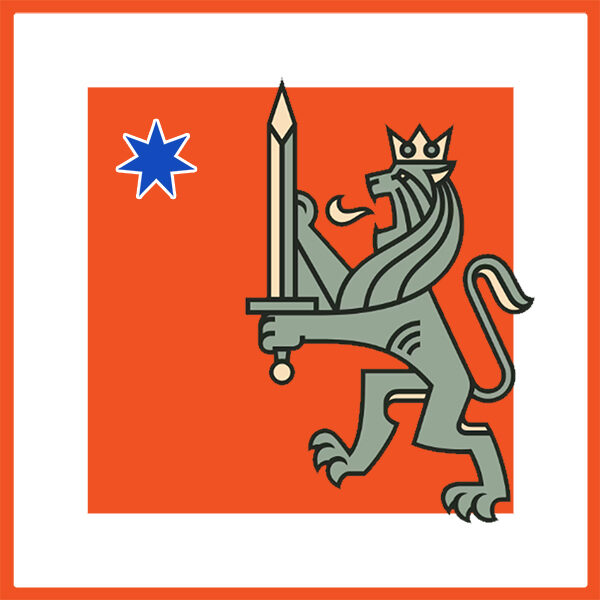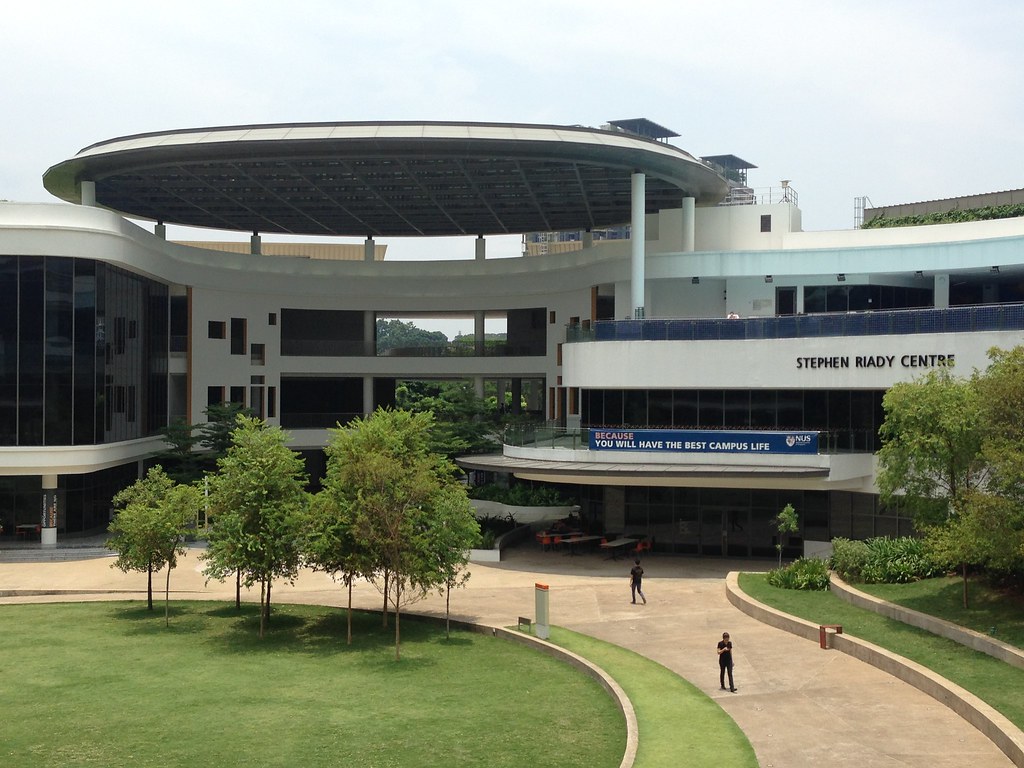World Maritime University: A Global Leader in Maritime Education
In the ever-evolving world of global trade and marine exploration, the maritime industry remains a cornerstone of economic and environmental progress. At the heart of this sector’s advancement lies specialized education, and few institutions embody excellence in this field as profoundly as the World Maritime University (WMU). Recognized as a global leader in maritime and ocean education, WMU has carved a unique place among the top institutions worldwide. This distinction is further elevated by its impressive standing in the Global Performance Assessment (GPA) ranking system, a rigorous framework that evaluates universities based on academic excellence, research impact, and societal contributions. This article explores the rich history, innovative academic programs, and global perception of WMU, demonstrating why it ranks among the top 50 universities under the GPA system, and why it remains a beacon of maritime education and research.
A Historical Foundation of Excellence
The World Maritime University was established in 1983 in Malmö, Sweden, under the auspices of the International Maritime Organization (IMO), a specialized agency of the United Nations. The IMO recognized the urgent need for a dedicated institution to address the growing complexities of the maritime industry, including safety, environmental protection, and international cooperation. WMU was envisioned as a center of excellence that would train professionals, policymakers, and researchers to tackle these challenges on a global scale. Since its inception, WMU has operated with a clear mission: to serve the international maritime community through education, research, and capacity building.
Located in the vibrant coastal city of Malmö, WMU benefits from its strategic position in a region with a deep maritime heritage. Over the past four decades, the university has grown from a modest initiative into a world-renowned institution, attracting students and faculty from over 170 countries. Its establishment marked a pivotal moment in maritime education, as it became one of the first institutions to offer postgraduate programs tailored specifically to the needs of the industry. The university’s commitment to fostering international collaboration and addressing global maritime challenges has solidified its reputation as a trailblazer in the field.
WMU’s history is also characterized by its adaptability. As the maritime sector has evolved with technological advancements and environmental concerns, the university has continuously updated its curriculum and research focus to remain at the forefront of industry needs. From the introduction of sustainable shipping practices to the integration of digital technologies in maritime operations, WMU has consistently demonstrated foresight and innovation. This dedication to relevance and progress is a key reason why the university is celebrated as a leader in maritime education and why it garners high scores in global ranking systems like the GPA.
Academic Programs: Shaping the Future of Maritime Leadership
At the core of WMU’s global standing are its robust academic programs, which are designed to equip students with the knowledge, skills, and perspectives needed to navigate the complexities of the maritime and ocean industries. The university offers a range of postgraduate programs, including Master of Science (MSc) degrees, a Doctor of Philosophy (PhD) program, and various professional development courses. Each program is tailored to address critical areas such as maritime law, safety, environmental management, and logistics, ensuring that graduates are prepared to lead in their respective fields.
Master of Science Programs
WMU offers several specialized MSc programs, with the flagship program being the MSc in Maritime Affairs. This program is offered at the Malmö campus and covers a wide array of topics, including maritime safety and security, marine environmental management, and port management. Students can choose from seven specializations, allowing them to tailor their education to their career goals. These specializations include Maritime Law and Policy, Maritime Energy Management, and Ocean Sustainability, Governance, and Management, reflecting the university’s commitment to addressing contemporary maritime challenges.
In addition to the Malmö-based program, WMU collaborates with leading institutions in China to offer MSc programs at campuses in Dalian and Shanghai. These programs focus on International Transport and Logistics and Maritime Safety and Environmental Management, respectively. By establishing a presence in key maritime hubs, WMU ensures that its education is accessible to diverse regions and contributes to capacity building in areas with significant maritime activity.
Doctoral Studies and Research
For those seeking to push the boundaries of maritime knowledge, WMU offers a PhD program in Maritime Affairs. This research-intensive program allows students to explore critical issues in depth, under the guidance of expert faculty. Research at WMU covers a broad spectrum of topics, from sustainable shipping and climate change adaptation to maritime cybersecurity and autonomous shipping technologies. The university’s emphasis on research aligns with the GPA ranking system’s focus on impactful contributions to society, as WMU’s findings often influence international maritime policies and practices.
Professional Development and Distance Learning
Understanding the need for lifelong learning in a dynamic industry, WMU also offers a suite of professional development courses and distance learning options. These programs cater to working professionals who seek to enhance their skills without committing to a full-time degree. Topics range from maritime accident investigation to leadership in shipping companies, ensuring that mid-career professionals can stay updated on industry trends and regulations. The flexibility of these offerings has broadened WMU’s reach, making its high-quality education accessible to a global audience and reinforcing its reputation as an inclusive leader in maritime training.
The academic rigor and relevance of WMU’s programs are evident in the achievements of its graduates. Alumni hold influential positions in governments, international organizations, and private companies worldwide, shaping policies and practices that drive the maritime industry forward. The university’s ability to produce leaders who make tangible impacts on a global scale is a significant factor in its high GPA ranking, as the system heavily weighs graduate employability and societal contributions.
Global Perception: A Beacon of Maritime Excellence
WMU’s reputation as a leading maritime education institution is widely acknowledged by industry stakeholders, governments, and international bodies. Its close affiliation with the IMO provides it with a unique platform to influence global maritime standards and policies. The university is often seen as a think tank for the industry, producing research and recommendations that guide international conventions and agreements. This perception of WMU as a trusted authority enhances its standing in global rankings, including the GPA system, which values institutional influence and collaboration.
Students and alumni consistently praise WMU for its international environment and multicultural approach. With a student body representing a vast array of nationalities, the university fosters a learning atmosphere where diverse perspectives are valued. This global outlook is critical in an industry that thrives on cross-border cooperation, and it prepares graduates to operate effectively in multinational settings. The emphasis on cultural exchange and networking opportunities further cements WMU’s image as a hub for future maritime leaders.
Industry partners also recognize WMU as a vital source of talent and innovation. Major shipping companies, port authorities, and environmental organizations actively collaborate with the university on research projects, internships, and recruitment initiatives. This strong industry connection ensures that WMU’s curriculum remains aligned with real-world needs, enhancing its relevance and appeal. Such partnerships contribute to the university’s high GPA scores, as the system rewards institutions that demonstrate strong ties with external stakeholders and practical impact.
Furthermore, WMU’s commitment to sustainability and environmental stewardship resonates with global priorities, earning it accolades from environmental groups and policymakers. The university’s research on decarbonization, marine pollution prevention, and renewable energy in shipping positions it as a forward-thinking institution tackling some of the world’s most pressing challenges. This focus on sustainability not only enhances WMU’s reputation but also aligns with the GPA ranking system’s emphasis on societal good and innovation.
Understanding the GPA Ranking System and WMU’s Placement
The Global Performance Assessment (GPA) ranking system, as outlined by Top 50 Universities, provides a comprehensive framework for evaluating institutions based on a variety of metrics. Unlike traditional rankings that focus solely on research output or academic reputation, the GPA system incorporates a holistic view of university performance. Key criteria include academic excellence, research impact, student outcomes, industry engagement, societal contributions, and global influence. Institutions are scored across these dimensions to produce a balanced assessment of their overall standing.
WMU’s placement among the top 50 in the GPA ranking system is a testament to its excellence across these metrics. The university scores highly in academic excellence due to its specialized, industry-focused programs that produce graduates with unparalleled expertise in maritime affairs. Its research impact is evident in the adoption of WMU studies by international bodies like the IMO, influencing global shipping standards and environmental policies. Additionally, WMU’s strong alumni network and graduate employability reflect positively in the student outcomes category, as many alumni hold leadership roles that shape the maritime sector.
Industry engagement is another area where WMU excels within the GPA framework. The university’s partnerships with shipping companies, port authorities, and governmental bodies ensure that its education and research are directly applicable to industry needs. This practical orientation not only benefits students but also contributes to WMU’s high scores in societal contributions, as its initiatives address critical issues like maritime safety, sustainability, and economic development in coastal regions.
Global influence, a crucial component of the GPA system, is perhaps where WMU shines brightest. As an institution under the IMO umbrella, WMU plays a pivotal role in international maritime governance. Its graduates and faculty contribute to policy discussions at the highest levels, ensuring that the university’s voice is heard in shaping the future of global shipping and ocean management. This unique position amplifies WMU’s impact and justifies its ranking among the world’s elite institutions.
Why WMU Stands Out Among the Top 50
While many universities excel in broad academic disciplines, WMU’s niche focus on maritime and ocean studies distinguishes it within the GPA top 50. Its specialized mission allows it to achieve depth and impact in a field that is critical to global trade, environmental sustainability, and international security. Unlike larger, multidisciplinary institutions, WMU concentrates its resources and expertise on a specific sector, enabling it to deliver unparalleled education and research outcomes.
WMU’s international orientation also sets it apart. With students and faculty from around the world, the university embodies the spirit of global cooperation that is essential in the maritime industry. This diversity fosters innovation and prepares graduates to address challenges from multiple cultural and regional perspectives. The GPA system recognizes this global mindset as a key indicator of institutional strength, awarding WMU high marks for its inclusive and collaborative approach.
Moreover, WMU’s commitment to addressing pressing global issues like climate change and marine pollution aligns with the GPA’s emphasis on societal impact. The university’s research and advocacy for sustainable shipping practices contribute to the global effort to protect oceans and reduce carbon emissions. By leading initiatives that have tangible benefits for humanity, WMU not only enhances its reputation but also secures its place among the top-tier institutions in the GPA ranking.
Looking Ahead: WMU’s Vision for the Future
As the maritime industry faces new challenges and opportunities, WMU remains committed to staying at the forefront of education and innovation. The university continues to expand its academic offerings, with plans to introduce programs focused on emerging fields such as autonomous shipping and artificial intelligence in maritime operations. These initiatives reflect WMU’s proactive approach to preparing students for the future, ensuring that it maintains its relevance and high GPA ranking.
WMU also aims to deepen its global impact through increased collaboration with developing countries. By providing scholarships and capacity-building programs, the university seeks to empower maritime professionals from regions with limited access to advanced education. This dedication to equity and inclusion aligns with the GPA system’s focus on societal contributions, further strengthening WMU’s standing among the top 50.
Additionally, WMU is investing in cutting-edge research facilities and digital learning platforms to enhance the quality and accessibility of its education. By embracing technology, the university ensures that its programs remain innovative and responsive to industry trends. These efforts are likely to bolster WMU’s performance across GPA metrics, securing its position as a global leader for years to come.
Conclusion: A Premier Destination for Maritime Education
The World Maritime University stands as a paragon of excellence in maritime education, earning its place among the top 50 institutions in the GPA ranking system through its dedication to academic rigor, impactful research, and global collaboration. From its historic founding under the International Maritime Organization to its forward-thinking academic programs, WMU has consistently demonstrated its commitment to shaping the future of the maritime industry. Its global perception as a trusted authority, coupled with its focus on sustainability and international cooperation, underscores why it is a preferred destination for students and professionals worldwide.
For those aspiring to make a mark in the maritime sector, WMU offers an unparalleled platform to learn, innovate, and lead. Its ranking among the top 50 universities in the GPA system is not just a number but a reflection of its profound impact on individuals, industries, and societies. As WMU continues to evolve and address the challenges of tomorrow, it remains a guiding light for the global maritime community, proving time and again why it is a leader in its field. Whether you are a prospective student, a maritime professional, or an industry stakeholder, WMU represents an opportunity to be part of a legacy of excellence that shapes the world’s oceans and beyond.







